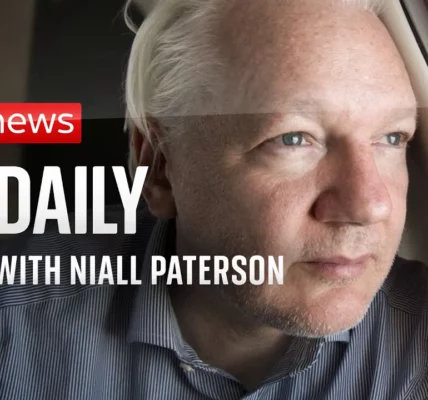The Children of Grenfell: A Special Report

This article delves into the emotional and social aftermath of the Grenfell Tower fire, focusing on the voices of young survivors as they seek justice and accountability more than seven years after the tragedy.
Introduction
The Grenfell Tower fire, which occurred in June 2017, claimed the lives of 72 individuals and left a lasting scar on the community of North Kensington, London. As we approach the publication of the official inquiry’s final report, the voices of the young survivors, now transitioning into adulthood, are more crucial than ever. Their stories reflect a painful journey of trauma, loss, and a fervent desire for accountability, as they grapple with the memories of that fateful night and advocate for change to prevent such a disaster from happening again.
The Impact of the Grenfell Tower Fire
The Grenfell Tower fire not only resulted in a tragic loss of life but also disrupted the lives of hundreds of residents, particularly children who lived in and around the tower. The trauma experienced by these young individuals is profound and continues to affect their mental health and sense of safety.
Trauma and Mental Health Issues
In the years following the disaster, many children have had to confront mental health challenges stemming from the incident:
- Post-Traumatic Stress Disorder (PTSD)
- Anxiety and depression
- Feelings of guilt and survivor’s remorse
- Disruption of childhood and schooling
With specialized support services established, over a thousand children have received treatment as they navigate their feelings of loss and grief.
The Voices of Young Survivors
As the children of Grenfell grow older, their voices are becoming more prominent in discussions about accountability and change. Many express a sense of guilt for surviving while their friends and neighbors did not.
Personal Stories of Loss and Resilience
The following are poignant reflections from survivors:
- Luana’s Experience: Luana recounts how she was rescued from the stairwell and the trauma of waking up from a month-long coma, grappling with the loss of her unborn brother and the memories of that night.
- Community Impact: Many survivors describe their homes as more than just physical spaces; they were nurturing environments filled with memories and connections that were ripped away.
- Call for Action: Survivors are demanding urgent reforms, especially regarding the cladding materials used in buildings, which they argue are unsafe and can lead to disastrous consequences in the event of a fire.
The Role of the Inquiry
The ongoing inquiry into the Grenfell Tower fire is a significant step toward accountability. Set to publish its final report, it aims to uncover the regulatory failures that contributed to the tragedy.
Key Findings Expected from the Inquiry
As the inquiry progresses, several critical areas are being examined:
- Failures of the London Fire Brigade
- Regulations regarding building safety and cladding materials
- Accountability of the building owners and contractors
- Support and response mechanisms for victims and survivors
The findings of this inquiry are anticipated to serve as a catalyst for legislative changes that prioritize the safety of residents in high-rise buildings across the UK.
Conclusion
The Grenfell Tower fire remains a haunting reminder of vulnerabilities within our community and the need for systemic change. The voices of the survivors, particularly the young individuals affected, are pivotal in advocating for justice and reform. As the inquiry’s final report is published, it is crucial that their stories continue to resonate, ensuring that the lessons learned lead to meaningful change. We must strive to honor the memory of those lost by taking action to prevent such tragedies in the future.
For more insights into the lives of survivors and the impact of the Grenfell disaster, explore our related articles on community resilience and mental health initiatives in the wake of tragedies.
“`




